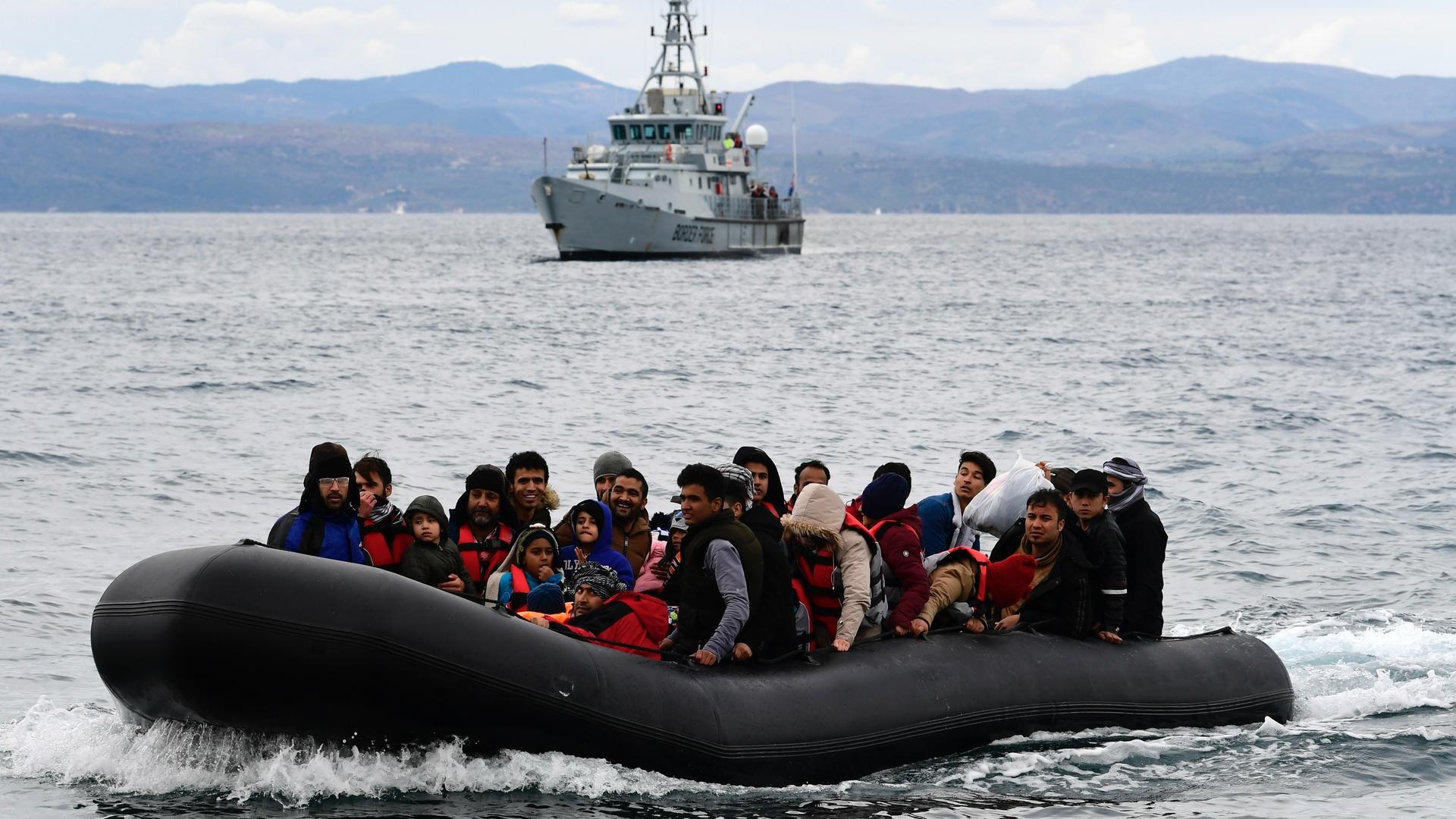‘A Bermuda triangle for people’: Claims that the Greek govt pushes back migrants are mounting
It’s approaching dusk in a valley near the northern coast of the Greek island of Samos, and a group of doctors is shouting into the wilderness.
The international nongovernmental organization, Doctors Without Borders (MSF — Médecins Sans Frontières), has received reports that a group of asylum-seekers arrived on the island and they want to help before the Greek government can intervene. They worry about people going missing.
Related: Cyprus takes a hard line against immigration, trapping migrants in limbo
The doctors strain their ears to hear signs of life. The search moves into the woods and torchlight bounce off trees. Suddenly, a colleague further down the track exclaims: “They’re over here!”
Six young men from Somalia and Eritrea appear from the darkness. The migrants have arrived by boat from Turkey, and they are afraid. They say some more are hiding in the woods, and others were already captured by police. Doctors drape thermal blankets around them and distribute water.
According to European and international law, migrants landing on the islands should be registered at a new EU-funded processing center where their asylum claims are examined. And yet, on a near-daily basis, the Turkish Coast Guard Command is finding boatloads of refugees drifting on the Aegean Sea with people on board claiming to have been violently deported from the islands and towed into the middle of the water — a move known as a “pushback.”
MSF head of mission Patrick Wieland explains that their small team offers medical support to migrants but also to physically witness their arrival, ensuring that the correct procedure is followed by the Greek authorities.
“We have to be quick. We have to get there before the Coast Guard can round them up and send them back to Turkey.”
“One of our colleagues was arrested and accused of espionage and facilitating illegal immigration. We are in this kind of grey zone. It’s not totally forbidden. It’s not totally authorized.”
Wieland recognizes that their activities are not popular with authorities: “One of our colleagues was arrested and accused of espionage and facilitating illegal immigration. We are in this kind of grey zone. It’s not totally forbidden. It’s not totally authorized.”
Related: ‘They want to make the Acropolis into Disneyland.’ Site renovations face backlash.
Dimitris Choulis is a lawyer from Samos who has fought cases brought against asylum-seekers for years. It is not without risk, either. He faces accusations, which he denies, of colluding with smugglers and assisting illegal entry.
“We don’t support smugglers or illegal migration, but we support the right of the migrant to apply for asylum. … We must respect this right. If you cancel this right, then we cancel a right that humanity fought for.”
“We don’t support smugglers or illegal migration, but we support the right of the migrant to apply for asylum,” he said. “We must respect this right. If you cancel this right, then we cancel a right that humanity fought for.”
At the scene of another intervention by the doctors, a group of 48 have just arrived on the island and are recovering outside a monastery. A young woman from Cameroon claims that she arrived on Samos last month, heavily pregnant, but was forced into a boat and abandoned at sea by Greek security forces.
The woman, now back on the island with her newborn, hopes she will be allowed to claim asylum this time.
Michael Svarnias, a journalist based on Samos, said that locals often see migrants before they are pushed back, but police try to cover up that they were ever there.
“Villagers give them directions, water to drink and bread to eat. Then, the police arrive, they take the migrants away and say that nothing has happened … And then, the people disappear.”
“Villagers give them directions, water to drink and bread to eat. Then, the police arrive, they take the migrants away and say that nothing has happened,” he said, adding, “And then, the people disappear.”
Svarnias heard a report that there had been a refugee boat arrival near the tiny village of Drakei high up in the hills on the island’s northwest, with many lifejackets spotted in the sea along with a beached inflatable boat.
When The World arrived in Drakei the next day, the local priest Father Lefteris confirms that around 30 refugees arrived in the village the previous evening.
According to the law, the police should transfer them to the camp for registration. But they were never taken there. The Greek Ministry of Maritime Affairs said that no arrivals had been recorded for Samos on the day in question.
But some people in Drakei say otherwise.
“It’s like a Bermuda triangle for people,” Svarnias said.
